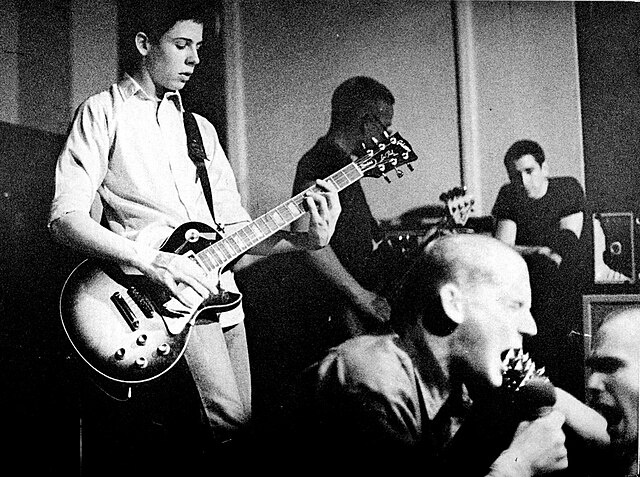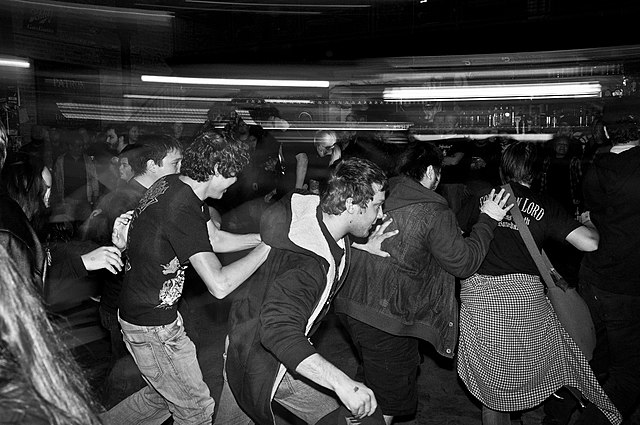D-beat is a style of hardcore punk, developed in the early 1980s by imitators of Discharge, after whom the genre is named, as well as a drum beat characteristic of this subgenre. D-beat is known for its "grinding, distorted and brutally political" sound. Discharge may have themselves inherited the beat from Motörhead and the Buzzcocks. D-beat is closely associated with crust punk, which is a heavier, more complex variation. The style was particularly popular in Sweden, and developed there by groups such as Crude SS, Anti Cimex, Mob 47, and Driller Killer. Other D-beat groups include Doom and the Varukers from the UK; Disclose from Japan; Crucifix and Final Conflict from the U.S.; Ratos de Porão from Brazil; and MG15 from Spain. While the style initially developed in the early 1980s, a number of new groups working within the subgenre emerged in the mid-1990s. These include the Swedish groups Wolfbrigade, Totalitär, Avskum, Skitsystem, and Disfear.
Skitsystem, a Swedish D-beat/crust group
Hardcore punk is a punk rock music genre and subculture that originated in the late 1970s. It is generally faster, harder, and more aggressive than other forms of punk rock. Its roots can be traced to earlier punk scenes in San Francisco and Southern California which arose as a reaction against the still predominant hippie cultural climate of the time. It was also inspired by Washington, D.C., and New York punk rock and early proto-punk. Hardcore punk generally disavows commercialism, the established music industry and "anything similar to the characteristics of mainstream rock" and often addresses social and political topics with "confrontational, politically charged lyrics".
Minor Threat performing in 1981
Bad Brains at 9:30 Club, Washington, D.C., 1983
Audience members moshing to Toxic Holocaust
Negative Approach in T-shirts at a 2013 show





